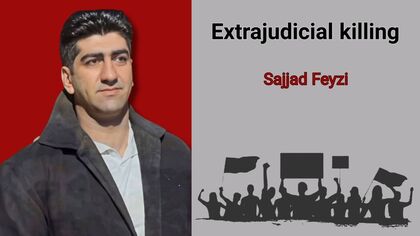Govt asks Iranians to stop buying dollars
19:38 - 20 November 2011

The Iranian government has asked its citizens not to buy dollars, in an effort to stem a rush for hard currency that has sent the exchange rate plummeting in recent months.
The official news agency IRNA quoted Economy Minister Shamseddin Hosseini yesterday recommending Iranians \"avoid for the time being buying foreign currency or gold coins due to their high rates\". Considering that the forex and gold coin rates are to drop, consequently those who buy them at high prices should not complain later on,\" he said.
Rising inflation and a reduction in bank deposit interest rates have spurred demand for foreign currency and gold among Iranians worried about the value of their savings and the central bank has struggled to support the value of the rial. Under its \"managed floating exchange rate\" the Central Bank of Iran\'s official dollar rate yesterday was 10,880 rials, but the real amount it cost to buy a dollar at an exchange bureau was 13,380, 23 percent more.
The Central Bank, which devalued the official rate by 10 percent in June in an attempt to narrow the gap between the official dollar rate and the market price, has appointed a new head of its foreign exchange department, Minoo Kiani-Rad, formerly head of its foreign affair section, according to its website.
Iranian President Mahmoud Ahmadinejad has blamed Iran\'s enemies for undermining the currency, saying \"ill-wishers keep buying up the dollar\", forcing the state to inject hard currency into the market. Economists say demand for dollars and gold is due to people seeking a safe haven as inflation rose steadily to 19.1 percent in October from a 25-year low of 8.8 percent in August 2010. Kayhan daily said the government had banned the import of foreign-made gold products in an attempt to combat smuggling.
Economic sanctions aimed at pressuring Iran to curb its nuclear program have had some impact on the economy but the biggest inflationary factor has been Ahmadinejad\'s policy to slash billions of dollars\' worth of food and fuel subsidies. With wages not rising to match, amid economic growth the IMF has forecast as 2.5 percent this
The official news agency IRNA quoted Economy Minister Shamseddin Hosseini yesterday recommending Iranians \"avoid for the time being buying foreign currency or gold coins due to their high rates\". Considering that the forex and gold coin rates are to drop, consequently those who buy them at high prices should not complain later on,\" he said.
Rising inflation and a reduction in bank deposit interest rates have spurred demand for foreign currency and gold among Iranians worried about the value of their savings and the central bank has struggled to support the value of the rial. Under its \"managed floating exchange rate\" the Central Bank of Iran\'s official dollar rate yesterday was 10,880 rials, but the real amount it cost to buy a dollar at an exchange bureau was 13,380, 23 percent more.
The Central Bank, which devalued the official rate by 10 percent in June in an attempt to narrow the gap between the official dollar rate and the market price, has appointed a new head of its foreign exchange department, Minoo Kiani-Rad, formerly head of its foreign affair section, according to its website.
Iranian President Mahmoud Ahmadinejad has blamed Iran\'s enemies for undermining the currency, saying \"ill-wishers keep buying up the dollar\", forcing the state to inject hard currency into the market. Economists say demand for dollars and gold is due to people seeking a safe haven as inflation rose steadily to 19.1 percent in October from a 25-year low of 8.8 percent in August 2010. Kayhan daily said the government had banned the import of foreign-made gold products in an attempt to combat smuggling.
Economic sanctions aimed at pressuring Iran to curb its nuclear program have had some impact on the economy but the biggest inflationary factor has been Ahmadinejad\'s policy to slash billions of dollars\' worth of food and fuel subsidies. With wages not rising to match, amid economic growth the IMF has forecast as 2.5 percent this



